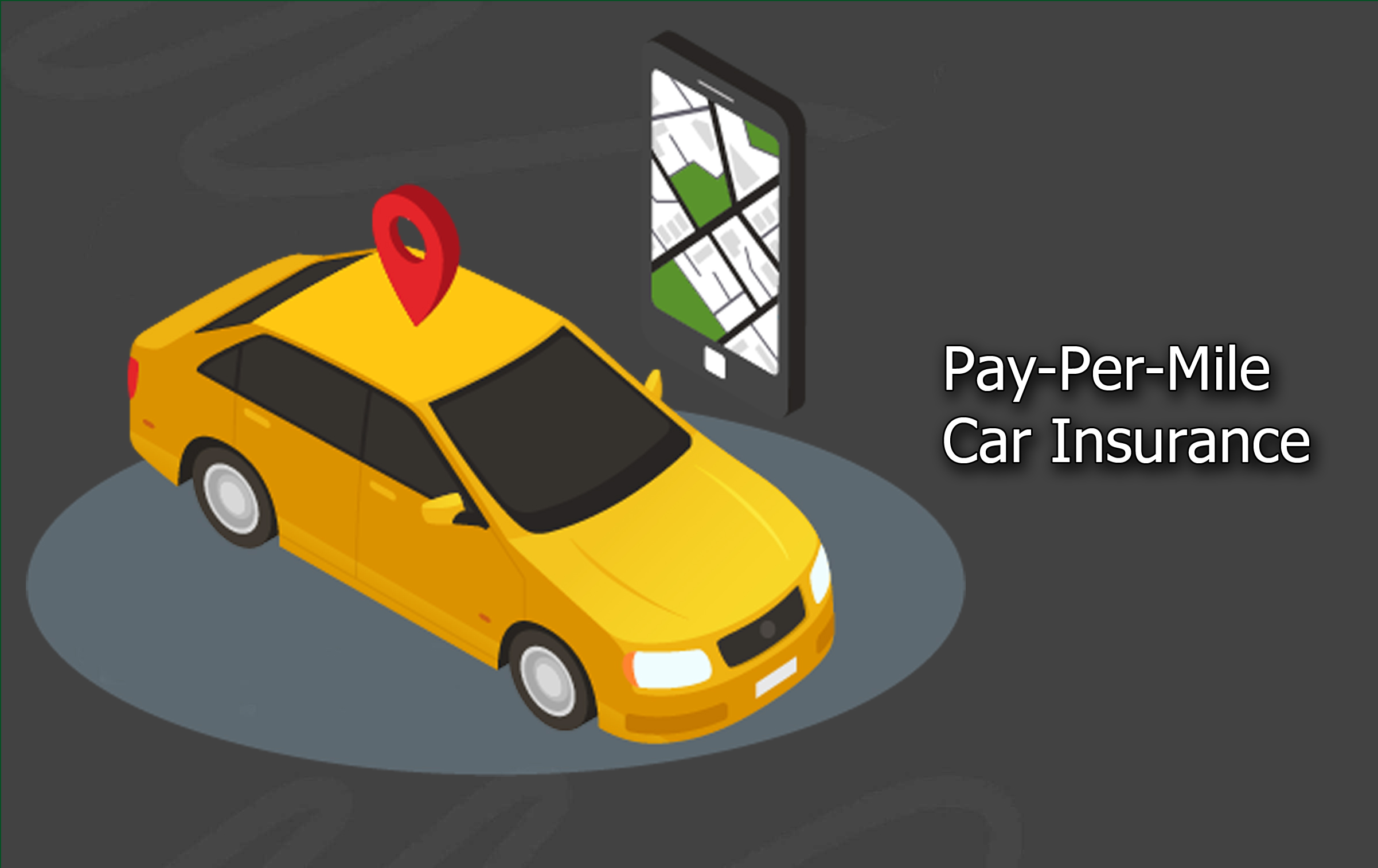
Pay-Per-Mile Car Insurance – Car insurance is a vital necessity for vehicle owners to manage expenses. However, for individuals who don’t drive frequently, the traditional insurance policies can be largely expensive. This is where the pay-per-mile car insurance comes in.

The Pay-Per-Mile insurance is an alternative that is designed for low-mileage drivers. This type of coverage allows policyholders to pay based on the number of miles they drive, offering significant cost savings and a fairer pricing model.
What is Pay-Per-Mile Car Insurance?
Pay-per-mile car insurance, also known as usage-based insurance (UBI), is a type of auto insurance where premiums are calculated based on the actual miles driven. The policies of this insurance model prioritize driving habits and mileage. This is unlike traditional car insurance policies, which make use of factors like age, location, and vehicle type to determine fixed rates.
This model is ideal for people who drive infrequently or only for short distances, as they can save money by paying less for insurance when they drive less.
How Does This Insurance Vehicle Work?
Pay-per-mile insurance typically involves two main components:
- Base Rate: This is a fixed monthly charge that covers essential liability, collision, and comprehensive coverage. It accounts for factors like age, driving record, and the type of vehicle.
- Per-Mile Rate: This variable rate is based on the number of miles driven. Insurers often charge a few cents per mile, and mileage is tracked through a device installed in the vehicle or a mobile app.
Who Benefits Most from Pay-Per-Mile Insurance?
The Pay-per-mile insurance isn’t for everyone, but it is particularly beneficial for such people:
- Remote Workers: Employees who work from home and drive only occasionally.
- Low-Mileage Drivers: Individuals who drive less than 10,000 miles per year.
- Second-Car Owners: Families with a second vehicle that is used sparingly
- City Dwellers: People who rely on public transportation or live in urban areas where owning a car is secondary.
Benefits of Pay-Per-Mile Car Insurance
Here are the benefits that come with purchasing a policy from this insurance model:
Cost Savings
The primary advantage of pay-per-mile insurance is its cost-effectiveness for low-mileage drivers. Traditional policies assume a higher average mileage, which leads to higher premiums.
Encourages Less Driving
By tying costs to mileage, pay-per-mile insurance moves individuals to drive less, which can contribute to reduced carbon emissions and lower traffic congestion.
Fair Pricing
Drivers pay only for the miles they use, making this a fairer approach compared to flat-rate premiums.
Transparency
The pricing structure is straightforward, and this allows drivers to see how their habits directly impact their premiums.
Drawbacks of The Insurance
While there are benefits of this insurance, there are also drawbacks to consider. They include:
Not Ideal for High-Mileage Drivers
For people who drive long distances regularly, pay-per-mile insurance may be more expensive than traditional policies.
Limited Availability
Pay-per-mile insurance is not offered by all insurers and may not be available in every state or country.
Mileage Tracking Devices
Some may find the use of the telematics devices intrusive. This is because these devices monitor mileage, location, and driving behaviors.
Coverage Limitations
Certain pay-per-mile policies might not offer all the features of standard policies, such as roadside assistance or rental car reimbursement.
Top Pay-Per-Mile Insurance Providers
Several insurance companies have entered the pay-per-mile market, offering competitive rates and features. Here are some of these prominent providers:
Metromile
Metromile specializes in pay-per-mile insurance. They offer a user-friendly app to track mileage and manage policies. What’s more, it also covers all standard insurance needs, including liability, collision, and comprehensive.
Allstate Milewise
Allstate Milewise is a top provider that allows policyholders to monitor mileage through a telematics device. Also, they offer discounts for safe driving habits.
Nationwide SmartMiles
Nationwide SmartMiles is another well reputable insurance provides that provides flexible coverage tailored to low-mileage drivers They also include the feature of accident forgiveness for qualified drivers.
Liberty Mutual ByMile
Liberty Mutual ByMile charges a flat daily rate plus a mileage rate. They also have tons of benefits they offer including 24/7 roadside assistance.
How To Determine If Pay-Per-Mile Insurance is Right for You
To evaluate whether pay-per-mile insurance is the right fit for you, you must consider the following:
- Track Your Mileage: Calculate your average monthly or annual mileage to see if it falls within the low-mileage range.
- Compare Costs: Obtain quotes from pay-per-mile providers and compare them with traditional policies.
- Analyze Your Driving Habits: If you rarely use your car or primarily drive short distances, this model could save you money.
- Check Availability: Ensure pay-per-mile insurance is available in your area and meets your coverage needs.
With these determining factors, you can come to terms with whether this insurance model is suitable for you.
Frequently Asked Questions
How Is Mileage Tracked?
Mileage is typically monitored using a telematics device installed in your vehicle or through a mobile app. These tools record the number of miles driven and sometimes track other data, such as speed or location.
What Happens If I Drive More Than Expected?
If you exceed your anticipated mileage, you’ll pay for the additional miles based on your per-mile rate. However, pay-per-mile policies often remain cost-effective for low to moderate mileage.
Can I Switch Back To A Traditional Policy?
Yes, you can switch policies if pay-per-mile insurance no longer suits your needs. It’s important to discuss cancellation terms with your provider.
Are There Privacy Concerns With Telematics Devices?
Some people worry about privacy, as telematics devices can track location and driving behavior. However, most insurers emphasize data security and allow policyholders to review what’s being monitored.